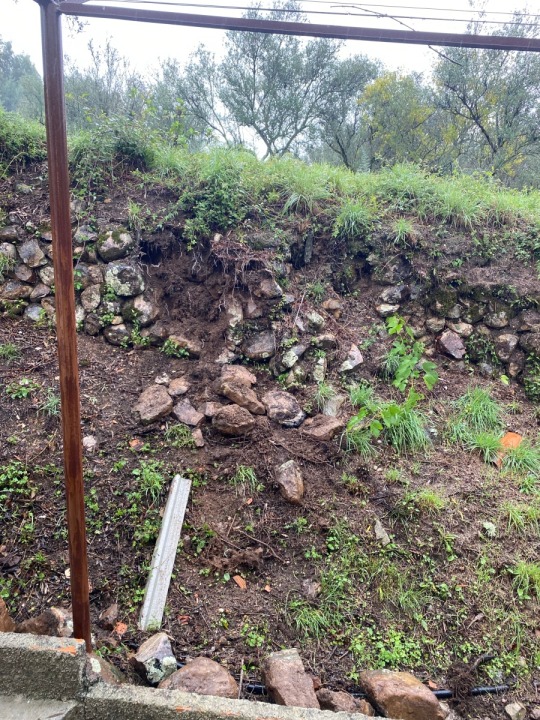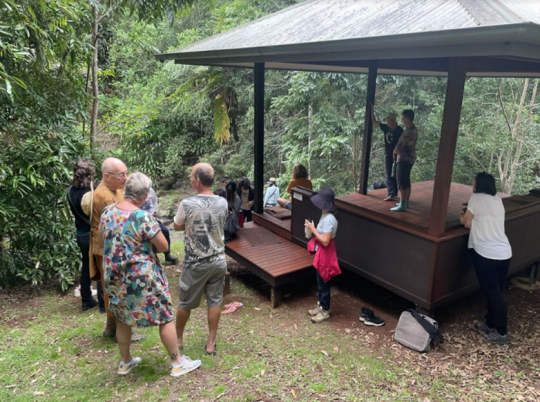#landownership
Explore tagged Tumblr posts
Text

How Do You Imagine Your Life in 10 Years?
This week, I spoke with a remarkable woman. A woman who built a successful career, raised her children with strong values, and never stopped learning and growing. Now, as she approaches her 60th birthday, she’s thinking ahead.
"I want a place that’s ours," she told me. "Something solid, something that will stay long after I’m gone. A place where my family can gather, grow, and remember."
She wasn’t just looking for an investment. She was looking for a legacy. A place to build a small home, to welcome her grandchildren during the holidays, to sit on the porch with a glass of good wine and watch the sun set over the mountains. She wanted something that would last—a piece of land her family could always call their own.
Smart real estate isn’t just about numbers. It’s about security, freedom, and building a future that stands the test of time.
What about you? How do you see your future? If you’re ready to create something real for your family—let’s talk.
📞 I’m Efrat Meiri. Call or message me today: (315) 384-8483
🌵 Easter Special – 10% OFF until April 20th! 🌵 https://emland.online/
#GenerationalWealth#FamilyLegacy#InvestInLand#FutureSecurity#TimelessValue#SmartInvestment#LandOwnership#BuildYourDream
0 notes
Text
Escape the Rent Trap: Own Your Dream Land for Just $50 Down! (Yes, Really!)

Are you sick of scrolling through endless real estate listings, feeling like the dream of land ownership is forever out of reach? Do you yearn for the freedom of owning your own space, whether it's a sprawling farm, a tranquil fishing retreat, or simply a place to call your own? Imagine building your dream home, launching that business you've always wanted, or creating a private sanctuary. Stop imagining and start owning!
Landishome.com, a unique mother-son family-owned business, is revolutionizing land ownership. We believe everyone deserves the chance to own a piece of the American dream, and we're making it unbelievably accessible. Forget the mountains of paperwork, the sky-high interest rates, and the daunting credit checks. We've simplified the process, offering affordable land parcels across the USA, Canada, and beyond, starting at under $1,000!
What makes Landishome.com different?
$50 Down, Seriously! Start your land ownership journey with a minimal deposit.
0% Interest-Free Financing: Say goodbye to crippling interest rates.
Payments from $49/Month: Budget-friendly options to fit your lifestyle.
No Credit Checks: Your past doesn't define your future.
Easy Contract Signing: A streamlined process for your convenience.
Flexible Payment Options: PayPal, Square, Venmo, Cash App, Zelle, Apple Pay, Bitcoin, and more!
Transparency You Can Trust: We own the land we sell, ensuring a safe and secure transaction.
Extensive Experience: Benefit from generations of expertise in real estate, contracting, and local government.
Dream Big, Own Bigger:
Own your home.
Own your business base.
Own a farm.
Own a camp.
Own a hunting retreat.
Own a fishing hole.
Own an island.
Imagine the possibilities! Envision your family gathering around a campfire on your own land, the peace and tranquility of your private retreat, or the satisfaction of building your dream home from the ground up. Landishome.com makes these dreams a reality. We've removed the barriers, making land ownership simple, affordable, and stress-free.
How it Works: Simple Steps to Your Dream Land:
Select Your Property: Browse our listings at Landishome.com and find your perfect piece of land.
Place Your $50 Deposit: Secure your property and start the process.
Sign Your Contract: We'll send you an easy-to-understand contract.
Make Monthly Payments: Enjoy 0% interest-free payments.
Receive Your Deed: Once paid, the deed is recorded in your name!
Don't let this incredible opportunity slip away! Visit Landishome.com today and take the first step towards owning your dream land. Remember that the $50 deposit is non-refundable, but it is credited to your overall purchase. You are responsible for any taxes due. Do your homework, ask us questions, and also check with the local city and county.
Click here to browse our listings and start your land ownership journey! https://landishome.com/
Make a Payment here: https://landishome.com/make-a-payment/
Important Disclaimer: LANDISHOME.COM and its contents are owned and operated by Skyline Real Estate Services. We hold the right to refuse service to anyone for any reason. We are not responsible for anything after the purchase of said real estate or products. Property sizes are not guaranteed to be accurate. All purchases are non-refundable. Seller is not responsible for any costs or fees after purchase or down payment. Buyer beware. Buyers are required to do all homework and research before purchase. You can always ask us any questions before purchase or the city/county.
#LandForSale#CheapLand#NoCreditCheck#OwnerFinancing#RealEstate#LandOwnership#InvestmentProperty#LandDeals#RuralLiving#DreamHome#FinancialFreedom#Landishome#OwnYourLand#LandInvestment#AffordableLand#dreamproperty#escapethecity#getaway
0 notes
Text
LANDSNDEEDS: YOUR TRUSTED PARTNER FOR SECURE REAL ESTATE TRANSACTIONS
Landsndeeds is your trusted partner in real estate, offering comprehensive services for buying, selling, leasing, and due diligence on properties. With a team of experts, including former IAS and IRS officers, we ensure every transaction is smooth and risk-free. Our deep knowledge of the real estate landscape in Tamil Nadu allows us to provide true value for your investment. We specialize in identifying the right buyer or seller and verifying the integrity of the property involved. Our professional approach guarantees a seamless and reliable process, making us the go-to choice for all property needs. Choose Landsndeeds for secure and confident property transactions.
To know more : https://landsndeeds.com/
#BuySellRent#RealEstateSolutions#SustainableRealEstate#RealEstateExperts#LandDevelopment#LandForSale#LandOwnership
1 note
·
View note
Text
பட்டா சிட்டா பத்திரம் தொடர்பாக குழப்பமா? சரியான வழிகாட்டுதல்!
Whatsapp Number:+91 75988 00123
Website: www.obcrights.org
youtube
#obcrights#school#trump#karur#Patta#Chitta#LandRecords#PropertyDocuments#LegalGuidance#LandOwnership#PattaChitta#LandRights#PropertyLegal#TamilNaduLandRecords#LandVerification#PropertyGuidance#LegalSupport#PattaChittaGuide#LandRegistration#PropertyOwnership#LegalDocuments#TNLandRecords#surveynum#surveynumber#Youtube
0 notes
Text
A Modern-Day Land Grab: How Eminent Domain Threatens Black Generational Wealth
A Modern-Day Land Grab: How Eminent Domain Threatens Black Generational Wealth
Written by: D. Marshall Jr In rural Georgia, a Black family is fighting to hold onto the land their ancestors purchased over a century ago. The Smith family, who has owned their 600-acre property in Sparta since the 1920s, is now being forced to defend their legacy against Sandersville Railroad Company, which wants to seize their land to build a rail spur. This is not just a local dispute, it’s…
#BlackLandMatters#BlackWealth#EconomicJustice#EminentDomain#FightForOurLand#GenerationalWealth#LandGrab#LandOwnership#PropertyRights#RealEstateJustice
0 notes
Text
🏡 How We Found Our 5-Acre Property – And Why We're Searching for More Land in 2025


As we step into January 2025, I can’t help but reflect on the incredible journey that led us to where we are today – living on 5 beautiful acres of land that now serves as the heart of Infinite Hearts Dog Sanctuary. This land has been a dream come true, giving our rescue dogs space to roam and allowing us to start transitioning to sustainable, off-grid living.
But if there’s one thing we’ve learned in the past year, it’s that 5 acres can fill up fast, especially when you’re raising animals, growing food, and running a sanctuary. So, as we move forward in 2025, we’re actively searching for more land.
If you’ve ever dreamed of owning land, starting a homestead, or living off-grid, I want to share our experience – from how we found our property to why we’re already planning to expand.
The Search for Land – How We Got Started
When we first started searching for land, I made the mistake of thinking the process would be similar to house hunting. I scoured Zillow and Realtor.com, saved properties, and set alerts – but something felt off. The land listings on these platforms were often limited, expensive, or tucked within housing developments.
That’s when I realized that buying land requires a different approach. Unlike homes, which are usually easy to find on mainstream platforms, rural land and off-grid properties are often listed on specialized sites or sold directly by landowners.
Here’s where I shifted my focus:
Land.com: One of the best resources for large parcels, raw land, and farms. This site connects buyers directly with landowners and agents.
LandWatch.com: Perfect for finding off-grid properties, hunting land, and undeveloped lots. The search filters made it easy to narrow down exactly what we were looking for.
LandSearch: This site aggregates listings from across the internet, giving you a comprehensive view of available land in your area.
Craigslist & Facebook Marketplace: Believe it or not, some of the best deals come from local listings and direct sales. Small landowners often bypass agents and list their land for sale on social platforms.
🔑 Tip: Check daily and set alerts – rural land, especially at reasonable prices, sells quickly. Some properties disappear within days, and being persistent can make all the difference.
Owner Financing – The Game-Changer
One of the biggest barriers to buying land is financing. Banks often view land loans as riskier investments, which can lead to higher down payments and interest rates.
That’s why owner financing became a crucial part of our journey. This option allows the seller to act as the lender, providing a direct payment plan without going through a bank.
Benefits of Owner Financing:
Lower Down Payments – Making land purchases more accessible.
Flexible Terms – Buyers and sellers can negotiate repayment schedules that work for both parties.
Easier Approval – Owner financing often comes with fewer credit requirements, making it ideal for those who might not qualify for a traditional loan.
👉 Pro Tip: When searching for land, use the “Owner Financing” filter. This simple step can open doors to properties you thought were out of reach.
This option made buying our 5 acres not only possible but far less stressful.
Why We’re Expanding in 2025
The 5 acres we own now are perfect for launching the sanctuary and starting a small homestead. But as we’ve spent more time on the property, it’s clear that if we want to truly live off the land and expand the sanctuary, we’ll need more space.
Here’s why we’re looking to expand:
Rescue Growth: We want to rescue more dogs and provide them with large, secure play areas and space to run. More land means we can expand kennels, shelters, and training areas.
Livestock & Farming: Part of our plan for off-grid living involves raising livestock and growing our own food. To sustain this long-term, we’ll need more pasture, garden space, and room for barns.
Community & Retreat Space: One of our biggest dreams is to open our sanctuary to the community, offering retreats and workshops for those who want to learn about sustainable living and animal care. We envision tiny cabins or eco-pods for guests – but that will require more acreage.
By expanding our land, we’ll be able to create a space not just for us and our dogs, but for others to experience the peace and healing that comes from nature and animals.
Our 2025 Off-Grid Vision
In 2025, we’re committed to taking more steps toward full off-grid living. This isn’t just about sustainability – it’s about freedom and creating a lifestyle where we rely on the land rather than outside resources.
Here’s what’s on our list for the year:
Solar Power Installation – To power the sanctuary and our future home.
Rainwater Collection – We plan to build systems that capture, filter, and store rainwater for crops, livestock, and daily use.
Livestock Expansion – We’ll add chickens, goats, and other livestock, focusing on animals that provide eggs, milk, and fertilizer.
Composting Toilets & Greywater Systems – Reducing waste and creating nutrient-rich compost for the garden.
Tiny Homes or Modular Cabins – We want to build small, sustainable living spaces that blend into the environment and provide simple, cozy homes.
How You Can Start Your Land Journey
If you’ve ever thought about buying land – even just a few acres – 2025 is the year to start. Prices fluctuate, but there are still opportunities to find affordable land, especially with the help of platforms like LandWatch and by exploring owner financing options.
Here’s how to get started:
Start Searching Now – The sooner you start, the more likely you’ll find a deal.
Be Persistent – Check listings daily and reach out to sellers quickly.
Look for Owner Financing – It can make all the difference in making land ownership possible.
Think Long-Term – Even a small parcel can be the start of something much bigger.
As we continue our search this year, I’ll share every step of the way. I hope our journey inspires and empowers you to take the leap toward land ownership and off-grid living.
Here’s to building a future off the land – one acre at a time.
#OffGridLiving#LandOwnership#HomesteadLife#InfiniteHeartsNC#FarmGoals#SustainableLiving#NCRescueDogs#LiveOffTheLand#OwnerFinancingTips
0 notes
Text
Understand the tax implications for NRIs inheriting agricultural land in India. Learn about tax liabilities, exemptions, and the legal process involved.
#NRIInheritance#AgriculturalLand#TaxForNRIs#NRIWealthManagement#IndiaTaxation#PropertyForNRIs#InheritanceIndia#LandOwnership#NRIInvestments#CapitalGainsTax
0 notes
Text

Purchase a plot this month in your daughter's name and receive a discount of Rs. 500 per square yard
#bbg#buildingblockgroups#RealEstate#OpenPlots#LandForSale#InvestmentProperty#PlotForSale#LandInvestment#PropertyForSale#RealEstateInvesting#BuyLand#BuildYourDreamHome#InvestInLand#LandSale#NewDevelopment#VacantLand#PropertyInvestment#LandDevelopment#LandInvestor#RealEstateAgent#LandListing#LandForDevelopment#LandForSaleByOwner#LandBroker#LandDeals#EmptyLot#BuyLandNow#LandOwnership#LandOpportunity#LandForBuilding
0 notes
Text
Navigate the digital landscape of land records with 'How to Check Bhulekh Online and Verify Your Land Ownership' on indiatechmitra.com. This detailed guide demystifies the process of accessing Bhulekh, the online portal that has revolutionized how land records are maintained, accessed, and verified in India. Whether you're a landowner looking to confirm the details of your property, a potential buyer conducting due diligence, or a real estate professional seeking accurate land information, our article provides step-by-step instructions for using Bhulekh. Learn how to search for property details, understand land plot maps, and ensure the accuracy of ownership records, all from the comfort of your home. With practical tips and insights, this guide is an essential resource for anyone looking to leverage the power of Bhulekh to streamline land verification processes. #BhulekhOnline #LandOwnership #VerifyLandRecords #RealEstateIndia #DigitalLandManagement #PropertyVerification #OnlineLandRecords #Indiatechmitra
#BhulekhOnline#LandOwnership#VerifyLandRecords#RealEstateIndia#DigitalLandManagement#PropertyVerification#OnlineLandRecords#Indiatechmitra
0 notes
Text
Garden Update 1; Rainy Day Chaos: Navigating Retaining Wall Woes and DIY Solutions in Home Renovation
See all those rocks at the bottom of the photo and the ones just sitting in the soil? They’ve removed themselves from the retaining wall opposite my front doors(yeah, I’ve got two. See this page for why). It’s been raining cats and dogs for the past week and the wall decided enough was enough. As you can tell, it isn’t exactly freshly built but I thought it would last at least until next summer.…

View On WordPress
#ChaosAtHome#DIYGardening#DIYHomeProjects#GardenCleanup#GardenMaintenance#HomeGardenWoes#HomeMaintenance#HomeRenovation#HouseandGardenTroubles#HouseMaintenance#LandOwnership#OliveTreeSupport#PropertyOwnership#PropertyResponsibilities#RainDamage#RainyDayProblems#RetainingWallIssues#UnexpectedChallenges#WallReconstruction#WeatheringTheStorm
0 notes
Text

Luna County: More than just cacti and desert – it's your next adventure!
Luna County: More than just cacti and desert – it's your next adventure!
🌵 Ready to escape the hustle and discover a simpler way of life? Luna County, New Mexico, is calling your name!
Here’s why people are choosing Luna County:
🏞️ Natural Beauty: Breathtaking desert landscapes, mountain views, and unforgettable sunsets. Perfect for hiking, camping, and exploring.
🤝 Welcoming Community: Small-town charm, friendly neighbors, and local traditions that make you feel right at home.
💰 Affordable Living: Low property taxes, budget-friendly land prices, and no zoning restrictions mean endless opportunities for your dream home or retreat.
🌞 Sunny Days Ahead: Over 300 days of sunshine each year for outdoor fun and relaxation.
🎉 Unique Experiences: From Rockhound State Park to local farmers’ markets and wineries, adventure is always around the corner.
Why wait?
🏡 Land in Luna County is being snapped up faster than ever. With its affordable prices and peaceful lifestyle, it’s the perfect place to invest in your future.
👉 Explore available properties now at https://emland.online/ or call (302) 510-1088 to secure your piece of Luna County before it’s gone!
🌟 Life’s simpler here—start your adventure today! 🌟
0 notes
Text
Unlock Your Iron River Dream! 1.5 Acre Gravel Pit - Endless Potential! $18,888 - Easy Owner Financing!
Imagine owning 1.5 acres of opportunity in the heart of Iron River, Michigan! This unique gravel pit parcel (Parcel # 004-028-079-00) is your blank canvas for endless possibilities. Whether you're dreaming of a business venture, a serene camping spot, or a future investment, this land is ready for your vision. A kickass addition to your portfolio.
Why This Iron River Gem is a Steal:
Prime Location: Just .4 miles to HWY 2, 1.8 miles to downtown Iron River, and a short drive to stunning Stanley Lake and Eagle River. GPS: 46.0915018,-88.6807223.
Unlimited Potential: Clean up and build! Consider:
Storage Solutions
Solar or Wind Farm Ventures
RV or Camping Grounds
Your Dream Business Location
Mineral rights are skyrocketing!
Carbon credits are also a possibility!
Affordable Owner Financing: Only $18,888! Get started with a $50 down payment and just $200 per month. No credit checks, no interest, and no prepayment penalties!
Iron River, MI: A Hidden Gem: Enjoy the beauty of Iron County, with its friendly community and abundant outdoor recreation.






Easy Payment Options:
Apple Pay
Bitcoin
CashApp
Paypal
Square
Stripe
Zelle
Why LandisHome is Your Trusted Land Partner:
LandisHome isn't just a real estate company; we're a family-run business built on the belief that land ownership should be accessible to everyone. Founded by a passionate mother and son team, we bring generations of experience—from brokerage and contracting to real estate appraisal and local government expertise—to every transaction. We understand that buying land can be daunting, which is why we've streamlined the process to be as simple and stress-free as possible. With thousands of successful sales, we've earned a reputation for honesty, transparency, and unparalleled customer service. We find fantastic land opportunities and bring them to you with affordable prices and easy financing. At LandisHome, we don't just sell land; we help you turn your dreams into reality.
Here's How Easy It Is:
Choose Your Property: Select this 1.5-acre gravel pit.
Place Your $50 Deposit: Secure your land today!
Sign Your Contract: We'll send you a simple contract.
Make Monthly Payments: Enjoy 0% interest financing.
Receive Your Deed: Once paid, the land is yours!
Terms and Conditions:
This land is sold "as-is." Do your due diligence before purchasing.
We guarantee clear title and will provide a deed upon full payment.
Buyer is responsible for property taxes and upkeep.
Reselling before full payment, requires our consent.
The $50 deposit is non-refundable, but it will be applied to the purchase price.
Landishome is not responsible for anything after the purchase.
Property sizes are not guaranteed to be accurate.
All sales are final.
Ready to Own Your Piece of Iron River?
Don't miss out on this incredible opportunity!
Email: [email protected]
Call or WhatsApp Casey Inman: +1 619 318 – 6078
Visit our payment page : https://landishome.com/make-a-payment/
LandisHome: Your Path to Land Ownership!
#LandForSale#RealEstateInvestment#LandOwnership#OwnYourLand#PropertyForSale#InvestmentProperty#LandDeals#NoCreditCheckLand
0 notes
Text
The reason people are telling you Touch Grass after you called Farming Sims “a bourgeois fantasy of landownership” is because, in general, farmers are not the bourgeoisie.
#I understand that yes you mean the players themselves are bourgeois#but calling it a ‘fantasy of landownership’ implies you think independent farmers are somehow bourgeois#and look people investing in monopolizing farmland is its own anti capitalist gripe! this is not that#these games are not about landownersh
55 notes
·
View notes
Text

Legal Procedure of Land Purchase and Use
0 notes
Text
Lismore Biodiversity News - Field Days and Partnerships
Lismore Biodiversity News - Field Days and Partnerships. A summary of workshops in 2023, and events planned for 2024.

View On WordPress
#Big Scrub Rainforest Day#Community Landholders#Conservation Efforts#Conservation Workshop#Environmental Education#Environmental Projects#Environmental Stewardship#Environmental Strategies#Field Day Events#Koala Festival#Koala Habitat Restoration#Landcare Initiatives#Landscape Hydration Training#Lismore#Natural Sequence Farming#Property Planning#Rural Landholder Initiative#Rural Landownership#Rural Property Aspirations#Sustainable Land Management#Workshop Series
0 notes
Note
People spend all day here posting about shit that doesn't matter and no one has a problem with it but when your posting about shit that doesn't matter involves Criticizing Popular Thing then they suddenly are like Poasting Is Serious Business Why Are You Posting About Shit That Doesn't Matter Poast About Important Shit Instead.
There’s so many bigger problems in this world than a fictional game about growing plants 😭 not everyone is American and not all land ownership is theft. Genuinely get some some fresh air and go to a party and talk to real people and do breathing exercises
i always wonder about people like this, like... if you see someone posting about something assume that they think they're Doing Activism and they have to be super emotional and fired up it kind of says something really depressing and sad about your own life and engagement with politics, right? the idea that you see Poasts on Website as the height of political engagement and so anyone doing that must care super deeply and passionately about what they're posting from can only really come from someone who has never done any meaningful political action in their life--someone to whom Poasting Online really is the highest level of political action they can imagine for the issues they really care about. sad!
#also love the implications that#1) your ideological opposition to the fantasy of landownership i. stardew valley radicates solely on land being stolen from indigenous ppl#(it didn't even come up even once anywhere in the original post)#2) land being stolen from indeigenous ppl is not A Thing outside of the U.S.#(literally just american exceptionalism but in reverse)
374 notes
·
View notes